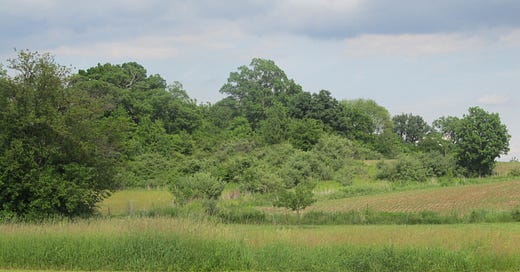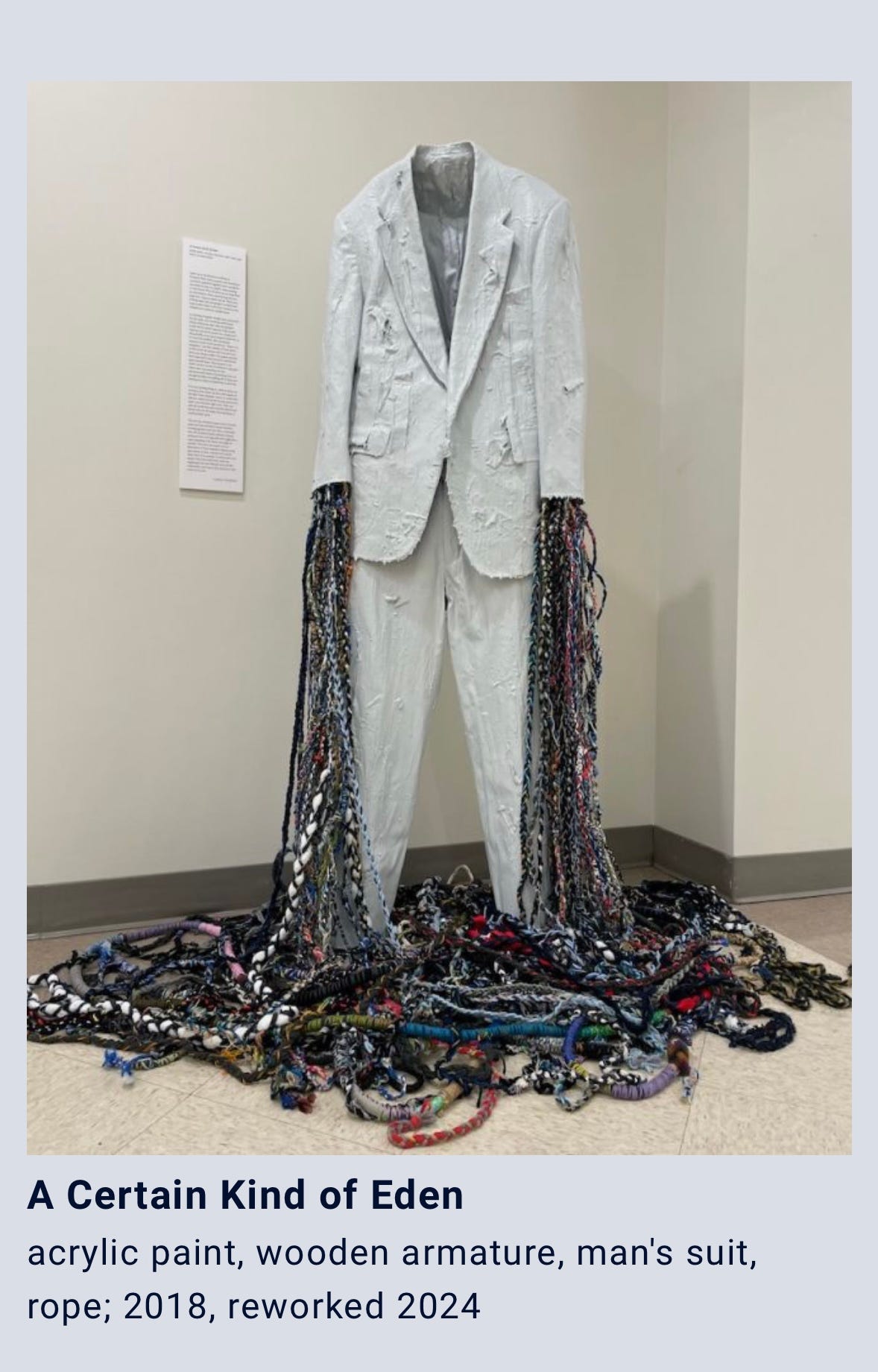Once I had a garden you wouldn’t believe. Not just the sugar pop of cherry tomatoes and leafy basil for pesto, but rainbow chard and sweet potatoes, asparagus and strawberries, butternut squash and bok choy. I trained snap peas to grow up the sides of a wooden teepee so that my three year old and five year old could sit inside and snack in the shade, their own secret garden. I lined the path to the apple tree with raspberry and blackberry bushes. I grew three kinds of melons, and cranberry beans that I dried on the stalk to save through the winter. Gourds grew out of the compost, and we couldn’t contain the vines.
This garden reappears in my writing all the time, its one abundant summer totemic in my memory, in my life, like the first time my mom showed me how to harvest potatoes from the ground. I’ve almost never felt more pleased with myself than the day I came home from vacation to an empty kitchen, and then gathered greens from the garden and eggs from the henhouse and made a meal.
But it was only one summer. I can be wonderful and inspired at the beginnings of things, but inevitably I lose interest by the end. If I’ve had success, I get bored; if I’ve failed, I get bored; if it’s hard, I get bored. By the time of the first fall frost, I had moved on. Some plants didn’t mind; the erect, self-righteous asparagus took care of itself. But I didn’t prune the strawberry runners, and so by the second summer the plants had all overextended themselves and none of them grew as full or as sweet the second time.
For the past few weeks, I’ve read this poem almost every day. I don’t know how I came across it. Maybe I was looking for Kay Ryan’s essay on AWP — I read that this month, too — but this is what I keep returning to:
A Certain Kind of Eden
It seems like you could, but
you can’t go back and pull
the roots and runners and replant.
It’s all too deep for that.
You’ve overprized intention,
have mistaken any bent you’re given
for control. You thought you chose
the bean and chose the soil.
You even thought you abandoned
one or two gardens. But those things
keep growing where we put them—
if we put them at all.
A certain kind of Eden holds us thrall.
Even the one vine that tendrils out alone
in time turns on its own impulse,
twisting back down its upward course
a strong and then a stronger rope,
the greenest saddest strongest
kind of hope.
It may be just the iambic pentameter of certain lines — A certain kind of Eden holds us thrall — the greenest saddest strongest kind of hope — the rhythm of the words.
Or it may be that I’m stuck in the yearning. It’s not, I think, regret for the roads not taken, in this poem, but yearning. It’s not regret because the sense isn’t that mistakes were made, but that the mistakes that were made were inevitable. Ryan’s poetry is often funny and surprising and cranky and irreverent, but this poem is something else, too, somehow managing to speak of hope with a requisite amount of resignation, yearning and sadness without sentimentality.
The sound, the yearning, or maybe the ambiguous interplay between Fate and agency, the predestined and the willed. In another book I’ve been reading this week, I read of a dairy cow who had a very particular way of feigning kicking over her milking bucket to clue her milker into the fact that she wanted more food. Thirty years later, the dairy farmer witnessed that cow’s great-great-granddaughter using the same exact trick, a move none of the other hundreds of cows she milked had ever made. I think this is what the poem means about the roots and runners that can’t be replanted. There is no way to shake the genetic imprint of our ancestors, their skills or their traumas or their tendencies to pretend to kick the milk bucket to get what they want. Nature wins out against nurture (what a boring sentiment when not in a poem).
And then I put this poem on my instagram story, and Andrew sent me a picture.
And then I thought, perhaps the hope of the poem isn’t that I might shake loose of my DNA, tendril out alone, escape my destiny — but that I might get back to Eden. That I might spill out of the tattered DNA suit that I never would have chosen into ropes and ropes that vine back to what I was made for, to what I am made of — and somehow stronger for the faulty directions first.
I have abandoned one or two gardens. No doubt I’ll abandon this poem next week, though I imagine it will probably resurface in due time. (A few years ago I read a book of Marilyn Hacker’s and only when I got to the end did I realized I had committed its final stanza to memory in college. Those things keep growing where we put them, or where they were put, I guess.)
I did something this spring that I haven’t done in a full decade, not since that totemic garden summer. I got seeds at the seed swap at church, and I bought a little grow light that I strung up under the desk in my office. Just this week I moved my little seedlings out into the backyard. My timeline is probably off for this region, and I don’t even have a garden bed, just some pots, and an old pallet. But I have a compost pile that’s almost three years old, and in it some soft, crumbly compost that I shoved in handfuls into the pallet spaces to feed what I think I’ve chosen.
Three Things:
“Dacus said that she has only ever found romantic love with friends or collaborators. “How are you doing romance without friendship?” she said, laughing. “I can’t imagine. That feels so hollow. It makes me feel ill! Someone that’s not my friend? Are you serious? Almost every relationship I have been in, we’ve had some business or creative dealings. I don’t mean this just sexually, but it turns me on.” She went on, “To have your minds meet on something, and be, like, ‘Oh, my gosh, you said what I couldn’t say. I love your mind.’ ” — in The New Yorker. My current favorite song on the album is Modigliani.
One of my favorite instagram accounts
An interview with Kay Ryan (also courtesy of Andrew)
Dangerous Territory is now available in an updated second edition and as an audiobook! Buy it in paperback or ebook at Bookshop, Amazon, or Barnes and Noble.
Where Goodness Still Grows is available wherever books are sold.





Your language in this essay is mesmerizing. Loved it, loved it.
Amy. Sixty-two-and-a-half things to say in response to this latest offering from you. Thank you! Let me see if I can herd three things worth saying here, down below.
1. That recognition of, and wrasslin' with, the generational runners, remainders, and ruinations hits hard, yo. Says the dude digging damnboo out his yard with a pickaxe. I'm looking at bits of this through different lenses right now, too, and I love that nod to wanting back to Eden. I wrote a first draft of a God-and-Garden poem this week, and that pull backward, that salmon-sense we all get our own microdose of, is so potent. I love how your Garden of Abundance memory-experience clings and calls.
2. Thank you for copping to boredom. Amen till the roof blasts off. And as a fellow Great Starter, Poorer Finisher, I pass along the digital hugs, my friend. How much I still have to learn from my boredest hours. What neglected gardens, gifts, even, those gray stretches are for me.
3. Kay Ryan, along with Mark Doty, have probably taught me the most about sound layers in poems. I love this one you center and help us consider. "You even thought you abandoned/one or two gardens." is a line break that seasons, softens, somethings, my harsher judgements about what I've left undone, unfulfilled, unned, in my days. Because most things the last couple of weeks have circled back to connect my own imagination with Leonard Cohen's "Come Healing" I'm looking at Ryan's lines and this poem with 'the crosses I left behind' just now:
O, gather up the brokenness
Bring it to me now
The fragrance of those promises
You never dared to vow
The splinters that you carried
The cross you left behind
Come healing of the body
Come healing of the mind
3.5 Thanks again for making me/us listen to "You Want It Darker."
3.75 That IG account is d-o-p-e. Many thanks!
3.83 Cows just clawed their way up another 20 notches in my fave-animals list to #4. Kick that bucket, Bessie.
3.997 I love, dearly, that "the day I came home from vacation to an empty kitchen, and then gathered greens from the garden and eggs from the henhouse and made a meal" is a meal that is, in a very real sense, still happening, always happening. Your reflections here are more than just an intimation of that to me. It's more of a small dish of what you gathered and made then, now. Thanks again.
Go little plants, go!
Michael